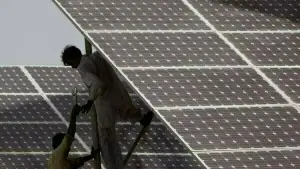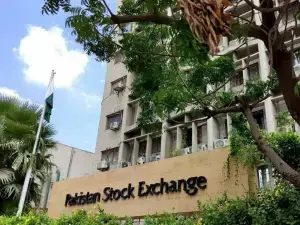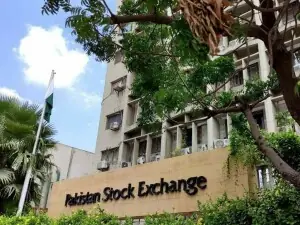South Africa imposed rolling power cuts for the first time since 2008 on Thursday as it struggled to cope with coal shortages and technical problems caused by recent heavy rains. State-owned electricity firm Eskom said incessant downpours over the past week had flooded mines and left stockpiles too wet to use in its coal-fired power plants.
The company, which supplies around 95 percent of the country's electricity, called on major industrial customers to reduce usage by at least 10 percent, and domestic users to turn off swimming pool pumps, water heaters and other non-essential items. It said power interruptions will be limited to two hours at a time.
"The whole country will be affected by load-shedding, but not every city or suburb will be affected by load-shedding simultaneously," spokesman Tony Stott told AFP. Large companies and major hospitals resorted to generators and emergency power supplies on Thursday as the first cuts kicked in. Flights at Johannesburg's main international O.R. Tambo airport were delayed and high-speed train services were partially suspended.
"We did experience a power outage. Our back-up power came on immediately and assisted us in terms of essential services but there were services that had to be operated manually and that resulted in some delays," airport authority spokeswoman Unathi Batyashe-Fillis told AFP. South Africa last suffered widespread blackouts six years ago, causing factories and mines to close and costing the economy billions of dollars. The crisis contributed to a credit rating downgrade, a sell-off in the rand and an outflow of investment.
The latest outages add to the country's woes at a time when it is lagging behind some of its African peers, with the central bank cutting its growth forecast to a four-year low of 2.8 percent for this year. "Eskom's inability to maintain a stable power supply is inhibiting investment, growth and job creation," BUSA, a business forum, said in a statement.
It added the "overall outlook has increasingly become a critical and uncertain one." The cuts also come just two months before crucial general elections in which the ruling African National Congress faces a stiff fight to retain power. Government officials tried to downplay the extent of the power problems. "We do not believe we have a crisis in energy at this present time," said Water Minister Edna Molewa. Eskom has struggled to keep the lights on in Africa's largest economy while racing to construct new plants to meet rising demand.
This is the fourth energy emergency in as many months and "the worst one so far," according to an Eskom official who asked not to be named. The power company is building three new coal-fired stations which will see the country's generation and transmission capacity jump by 17,000 megawatts from an average 40,000 MW. One of the biggest coal-fired power plants, Medupi, was supposed to have come onstream by the end of last year, but is now running behind schedule due to labour disputes.
South Africa is looking to diversify into nuclear and shale gas power production, but for now remains heavily dependent on coal, which provides around 90 percent of its energy. The coal has to be pulverised into fine powder before it is burned and then mixed with hot air and blown into the firebox of boilers. When it is wet it becomes difficult to grind the coal into the required talcum-like fineness powder.
BR100
16,307
Increased By
236.2 (1.47%)
BR30
51,537
Increased By
1163.4 (2.31%)
KSE100
157,953
Increased By
1775.7 (1.14%)
KSE30
48,199
Increased By
520.5 (1.09%)






















Comments
Comments are closed.